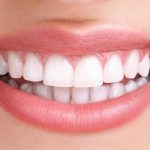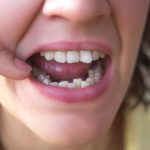Why Candy Hurts Your Teeth: Understanding the Effects of Sugar on Tooth Enamel

Candy is a delicious treat that people of all ages enjoy. While it may satisfy our sweet tooth, it can also have a detrimental impact on our dental health. The sugar found in candy can cause significant damage to our tooth enamel, leading to a variety of dental problems such as cavities, sensitivity, and even tooth loss. Understanding the effects of sugar on our teeth is crucial for maintaining good oral health and preventing potential dental issues. The enamel is the protective outer layer of our teeth that helps protect against decay and damage. When we consume sugary foods and drinks, the bacteria in our mouth feed on the sugar, producing acid that attacks our enamel. Over time, this acid can wear away the enamel, causing it to weaken and become more susceptible to decay. The more frequently we consume sugar, the more damage that can occur, leading to a host of dental problems that can be painful and costly to treat. By understanding the effects of sugar on our teeth, we can take proactive steps to protect our dental health and enjoy our favorite treats in moderation.
Candy is a sweet treat enjoyed by many, but it can also be harmful to your teeth. The sugar in candy can lead to tooth decay and cavities, as well as weaken and erode tooth enamel. Tooth enamel is the hard, protective outer layer of teeth, and it is essential for maintaining healthy teeth. When sugar is consumed, it interacts with the bacteria in your mouth, creating acids that attack and weaken tooth enamel. Over time, this can lead to tooth decay and the need for costly dental treatments. Understanding the effects of sugar on tooth enamel is essential for maintaining good oral health and preventing serious dental problems.
Understanding the effects of sugar on tooth enamel is crucial for maintaining optimal oral health. Sugar is a major contributor to tooth decay, as it promotes the growth of harmful bacteria in the mouth that erode the protective layer of enamel on teeth. When enamel is weakened or worn down, teeth become more susceptible to cavities, sensitivity, and other dental problems. By comprehending the negative impact of sugar on enamel, individuals can make informed decisions about their dietary choices and take preventative measures to protect their teeth. Regular brushing, flossing, and routine dental checkups are essential components of proper oral hygiene that can help mitigate the harmful effects of sugar on enamel and preserve the health and beauty of one’s smile.
How Sugar Damages Tooth Enamel
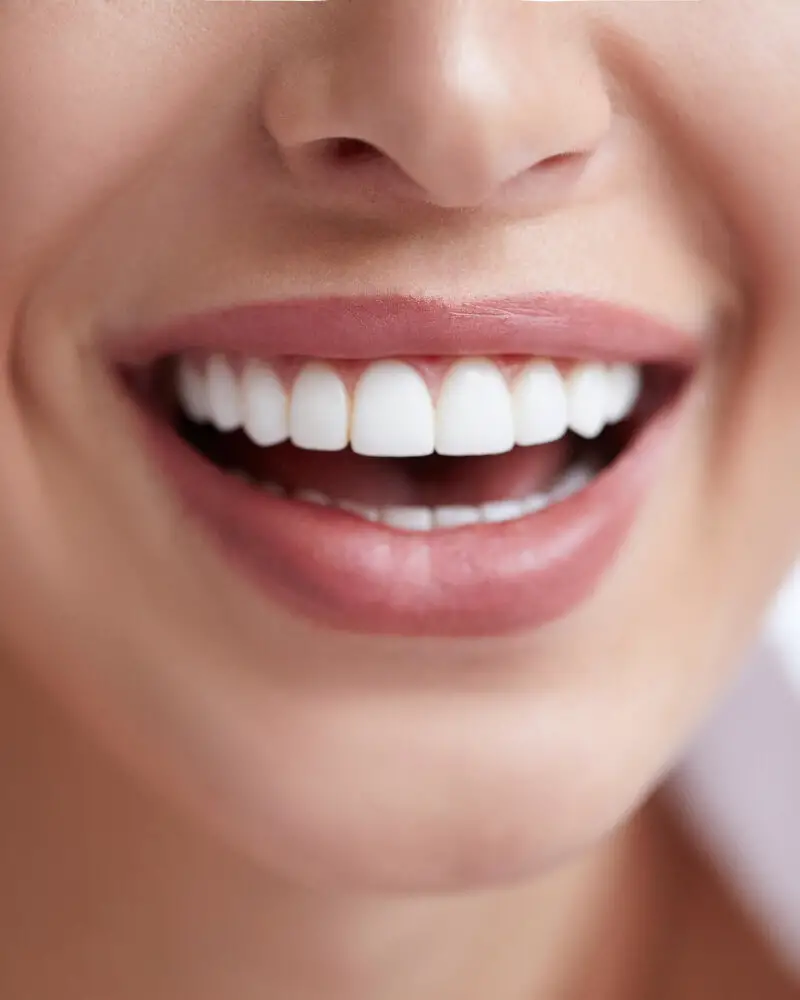
Sugar is often considered one of the main culprits behind tooth decay and damage to tooth enamel. When you consume sugary foods and drinks, the bacteria in your mouth feed on the sugar and produce acid as a byproduct. This acid slowly erodes the protective layer of tooth enamel, which can lead to cavities and tooth sensitivity. The longer the sugar remains in your mouth, the more damage it can do to your teeth. Sticky candies and sugary drinks that linger in your mouth for extended periods are particularly damaging to tooth enamel. The effects of sugar on tooth enamel can be even more pronounced when combined with poor oral hygiene habits. If you aren’t brushing and flossing your teeth regularly, the sugar and acid can accumulate and wear away the enamel more quickly. Additionally, consuming sugary foods and drinks throughout the day instead of limiting them to mealtimes can expose your teeth to constant acid attacks. To protect your teeth from sugar-related damage, it’s important to practice good oral hygiene habits and limit your consumption of sugary foods and drinks. Drinking plenty of water can also help rinse away any harmful acids and sugar particles lingering in your mouth.
Tooth decay is a process that occurs when bacteria in the mouth break down sugars and produce acid that erodes the hard, outer layer of the tooth called enamel. This acid attack can cause tiny holes or cavities to form in the enamel, which can eventually penetrate through to the inner layers of the tooth. As the decay progresses, it can lead to sensitivity, pain, and even tooth loss. Consuming sugary foods and drinks can accelerate this process by providing the bacteria with more fuel to create acid. Additionally, frequent snacking or sipping on sugary beverages throughout the day can prolong the acid attack on teeth, making them more susceptible to decay. Maintaining good oral hygiene practices, such as brushing and flossing regularly and visiting the dentist for check-ups, can help prevent and manage tooth decay.
Sugar is a major culprit in the development of tooth decay. When we consume sugary foods and drinks, the bacteria in our mouth feed on the sugar and produce acid as a byproduct. This acid then attacks the enamel that protects our teeth, gradually wearing it down over time. As the enamel becomes weaker, it becomes more susceptible to cavities and other forms of damage. Unfortunately, sugar is a common ingredient in many of the foods and drinks that we consume on a daily basis, making it difficult to avoid entirely. However, by reducing our overall sugar intake and practicing good oral hygiene habits, we can minimize the damage that sugar does to our teeth and keep our smiles healthy and bright.
Sugar consumption can have a detrimental impact on the pH level in the mouth. When sugar is consumed, it combines with bacteria in the mouth to form acid. This acid then attacks the tooth enamel, leading to decay and cavities. The pH level in the mouth drops, making it more acidic and causing the tooth enamel to dissolve. This process is exacerbated by frequent sugar consumption, as it provides a constant source of food for the bacteria in the mouth. Additionally, the longer sugar remains in the mouth, the greater the risk of damage to tooth enamel. Therefore, it is essential to limit sugar intake to protect dental health and maintain a healthy pH level in the mouth.
Types of Candies That Are Harmful to Teeth
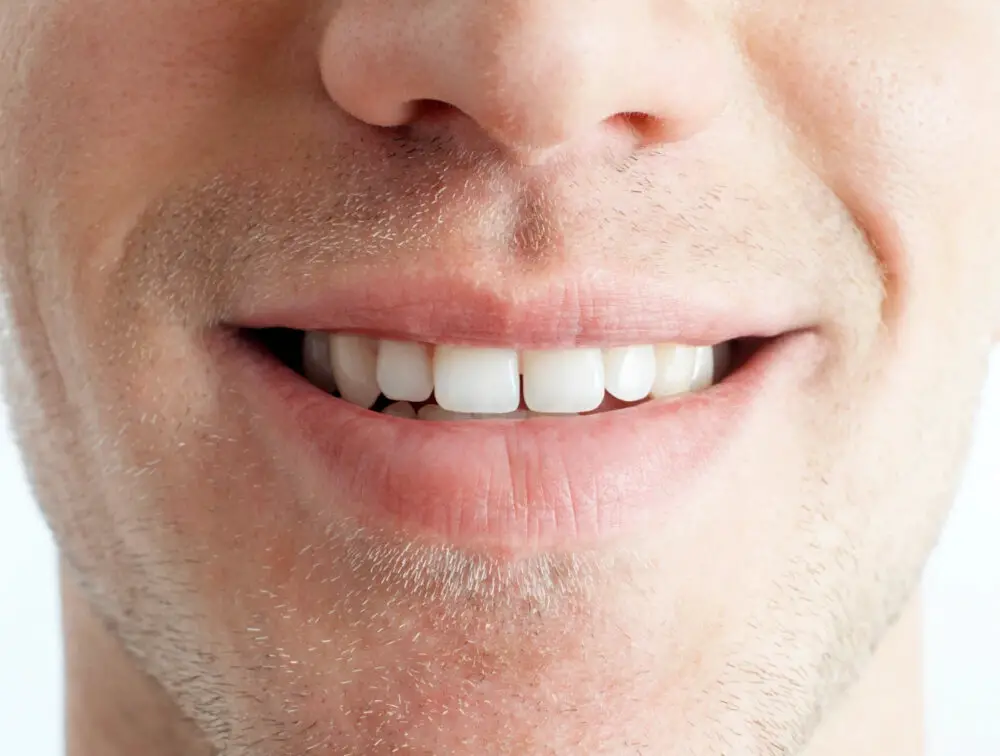
Candies, especially the sweet and sticky ones, are known to be harmful to teeth. These types of candies can cause significant tooth decay and cavities due to their high sugar content. One of the types of candies that are harmful to teeth is hard candies. These candies are known to stay in the mouth for a long time, increasing the exposure of teeth to sugar. Additionally, they can cause damage to the teeth by chipping or breaking them, leading to more significant dental problems. Another type of candy that can be harmful to teeth is sour candy. These types of candies are highly acidic and can erode the enamel on teeth, leading to tooth decay and sensitivity. The combination of the high sugar content and acidity in sour candy can be especially harmful to teeth. Moreover, sour candies are often chewy and can stick to teeth, making it difficult to remove the sugar and acid from the mouth. Therefore, it is important to limit the consumption of sour candies and to take proper care of teeth to prevent damage and decay.
Candy is a confectionary item that comes in various types, shapes, and sizes, with each having its unique taste and texture. Hard candies are made by boiling sugar syrup, while gummies are made by adding gelatin to the mixture. Chocolate candies are made by combining cocoa powder, sugar, and milk, while caramels are made by heating sugar and cream. Candies also come in sour, sweet, and fruity flavors, and some have fillings like nuts, fruits, and cream. While candy can be enjoyable to eat, it’s essential to note that they contain high levels of sugar, which can lead to tooth decay and other health problems if consumed in excess.
The effects of candy on tooth enamel vary depending on the type of candy. Hard candies that take a long time to dissolve in the mouth expose teeth to sugar for an extended period, increasing the risk of tooth decay. Sticky candies like gummies and caramels adhere to teeth, making it difficult for saliva to wash away the sugar and acids produced by the bacteria in the mouth. Chocolate, on the other hand, is less harmful to teeth than other candies because it dissolves quickly and doesn’t stick to teeth. However, chocolate candy bars that contain caramel, nougat, and other sticky fillings can still cause damage to tooth enamel. In conclusion, it’s essential to limit the consumption of all types of candy to maintain healthy teeth and avoid tooth decay.
When it comes to the most harmful candies for your teeth, there are several factors to consider. Gummy candies, for example, are notorious for sticking to teeth, making them difficult to remove even with brushing and flossing. Sour candies, on the other hand, contain high levels of acid that can erode tooth enamel over time. Hard candies pose a dual threat, as they not only contain high amounts of sugar but also require prolonged chewing, which can lead to dental fractures or chipped teeth. Ultimately, the most harmful candies are those that are high in sugar, contain sticky or acidic ingredients, and are consumed frequently or for prolonged periods of time. To protect your teeth, it’s best to limit your candy intake and practice good oral hygiene habits.
Preventing Tooth Decay Caused by Sugar

Tooth decay caused by sugar is a common problem that affects people of all ages. The consumption of sugar-rich foods and drinks can lead to the formation of harmful bacteria in the mouth, which produce acids that erode tooth enamel. In order to prevent tooth decay caused by sugar, it is important to maintain good oral hygiene habits such as brushing and flossing regularly. Additionally, reducing the intake of sugary foods and drinks can also help to prevent tooth decay. Choosing sugar-free alternatives or opting for water instead of sugary drinks can significantly reduce the risk of tooth decay. Furthermore, incorporating foods that promote good oral health can also help to prevent tooth decay caused by sugar. Foods such as cheese, leafy greens, and crunchy fruits and vegetables can help to neutralize acids in the mouth and promote saliva production, which helps to wash away harmful bacteria. Chewing sugar-free gum after meals can also stimulate saliva production and help to neutralize acids in the mouth. Overall, taking proactive steps to prevent tooth decay caused by sugar can help to maintain good oral health and prevent the need for extensive dental treatments in the future.
Reducing sugar intake is not only beneficial for our overall health but also plays a significant role in maintaining strong and healthy teeth. To cut down on sugar, one can start by checking food labels and avoiding processed foods that are high in added sugars. It is also essential to limit the consumption of sugary drinks such as soda, juice, and sports drinks. Replacing sugary snacks with fruits, vegetables, and nuts can help satisfy cravings while providing essential vitamins and minerals. Additionally, opting for sugar-free chewing gum or mints can help freshen breath without damaging tooth enamel. By making small changes to our diet and being mindful of hidden sugars in our food, we can protect our teeth and promote overall health.
Maintaining good oral hygiene is essential to keep our teeth healthy and strong. Brushing and flossing are two of the most crucial practices that help in preventing tooth decay and gum diseases. While brushing, it’s recommended to use a soft-bristled brush and fluoride toothpaste, which helps to remove plaque and strengthen the enamel. One should brush their teeth twice a day for at least two minutes, making sure to cover all areas of the mouth, including the tongue. Flossing is equally important, as it removes food particles that are stuck between the teeth and hard to reach with a toothbrush. One should floss at least once a day, gently sliding the floss between the teeth and curving it around the base of the tooth to remove any debris. By following these best practices for brushing and flossing, we can maintain good oral health and keep our teeth strong and healthy.
Regular dental checkups are essential for maintaining good oral health, especially if you have a sweet tooth. Sugar is one of the most significant contributors to tooth decay, as it creates an acidic environment in the mouth that erodes tooth enamel. Dental checkups allow your dentist to detect any signs of decay early on, so they can be treated before they become more severe. Additionally, regular cleanings can help remove any plaque or tartar buildup that can contribute to decay. By visiting your dentist at least twice a year, you can ensure that any potential problems are caught early, and you can enjoy a healthy, vibrant smile for years to come.
Alternative to SugarFilled Candies

Candies are a delicious treat that many of us indulge in. But the high sugar content in candies can wreak havoc on our teeth, leading to tooth decay and erosion of tooth enamel. Fortunately, there are several alternatives to sugar-filled candies that can satisfy our sweet cravings without harming our teeth. One such option is dark chocolate, which contains less sugar and more antioxidants than milk chocolate. Dark chocolate has been shown to have numerous health benefits, including reducing inflammation and improving brain function. Another great alternative to sugar-filled candies is fresh fruit. Fruits like strawberries, apples, and oranges are naturally sweet and contain vitamins and minerals that are essential for maintaining healthy teeth and gums. Chewing on crunchy fruits like apples and pears can also help remove plaque from teeth. If you’re looking for a more savory snack, try roasted nuts or seeds, which are high in protein and healthy fats. These alternatives to sugar-filled candies not only taste great but also promote overall health and wellness. So, the next time you’re craving something sweet, try reaching for one of these healthier options instead.
Sugar-free candy options have become increasingly popular as people have become more aware of the harmful effects of sugar on tooth enamel. These candies are sweetened with sugar substitutes such as aspartame, xylitol, and sorbitol, which do not promote bacterial growth or tooth decay. Additionally, they have fewer calories than traditional candy. Sugar-free candies come in a variety of flavors and types, including hard candy, gummies, and chocolate. While they may not taste exactly like their sugar-laden counterparts, they offer a guilt-free way to satisfy a sweet tooth without compromising oral health. It is important to still practice good oral hygiene habits, such as brushing and flossing regularly, to maintain healthy teeth and gums.
Choosing sugar-free candy can have significant health benefits, particularly when it comes to your teeth. Most conventional candy is packed with sugar, which can lead to tooth decay and cavities. Sugar-free candy, on the other hand, is made with alternative sweeteners that don’t have the same negative effects on tooth enamel. In fact, some sugar-free candies even contain xylitol, which has been shown to reduce the amount of harmful bacteria in the mouth. Plus, sugar-free candy is typically lower in calories, making it a healthier choice for those looking to watch their weight. So next time you reach for a sweet treat, consider going sugar-free for the sake of your teeth and overall health.
When it comes to sugar-free candy, there are various popular brands available in the market. Some of the well-known brands include Werther’s Original, Russell Stover, and LifeSavers. Werther’s Original offers sugar-free hard candies that come in a variety of flavors, including caramel, coffee, and butter mint. Russell Stover, on the other hand, provides sugar-free chocolate-covered candies that come in different flavors such as peanut butter cups, mint patties, and coconut clusters. LifeSavers, famous for their hard candies, offers sugar-free versions of their classic flavors such as cherry, watermelon, and raspberry. While these sugar-free candies may be a better option for those looking to avoid the negative effects of sugar on their teeth, it is still essential to consume them in moderation and maintain good oral hygiene practices.
It is crucial to comprehend the effects of sugar on tooth enamel, as this knowledge can be crucial in maintaining good oral health. The consumption of candies, sugary drinks, and other sweet treats can lead to an increase in the production of acid in the mouth, which can cause tooth decay and erosion of enamel. Tooth enamel is the hard, protective outer layer of the teeth, and once it is damaged, it cannot be regenerated. Thus, understanding the consequences of consuming sugary products can help individuals make informed decisions about their dietary habits and take steps to protect their teeth and gums. Regular dental checkups, proper oral hygiene, and limiting sugary foods and drinks can all contribute to maintaining healthy teeth and preventing dental problems.
There are several ways to prevent tooth decay caused by sugar. One of the most important is to reduce the amount of sugar consumed by avoiding sugary drinks, candies and sweets. Another approach is to brush teeth regularly with fluoride toothpaste and floss at least once a day to remove food particles and plaque. Chewing sugar-free gum can also help stimulate saliva production, which neutralizes acid and helps to remineralize tooth enamel. Additionally, consuming foods high in calcium, vitamin D and phosphorus, such as milk, cheese and leafy greens, can help to strengthen teeth and prevent decay. It’s important to maintain good oral hygiene habits and visit your dentist regularly for check-ups and cleanings to prevent tooth decay and maintain good oral health.
In conclusion, maintaining good oral hygiene and reducing sugar intake are crucial for preserving healthy teeth and gums. The consumption of sugary foods and beverages can lead to the breakdown of tooth enamel, which can result in cavities, tooth decay, and tooth loss. Regular brushing, flossing, and dental check-ups can help prevent these issues and ensure proper oral health. Additionally, reducing sugar intake can not only benefit oral health but also overall health by reducing the risk of obesity and related health problems. By making conscious choices about what we consume and taking care of our oral hygiene, we can maintain healthy teeth and gums for a lifetime.
Conclusion
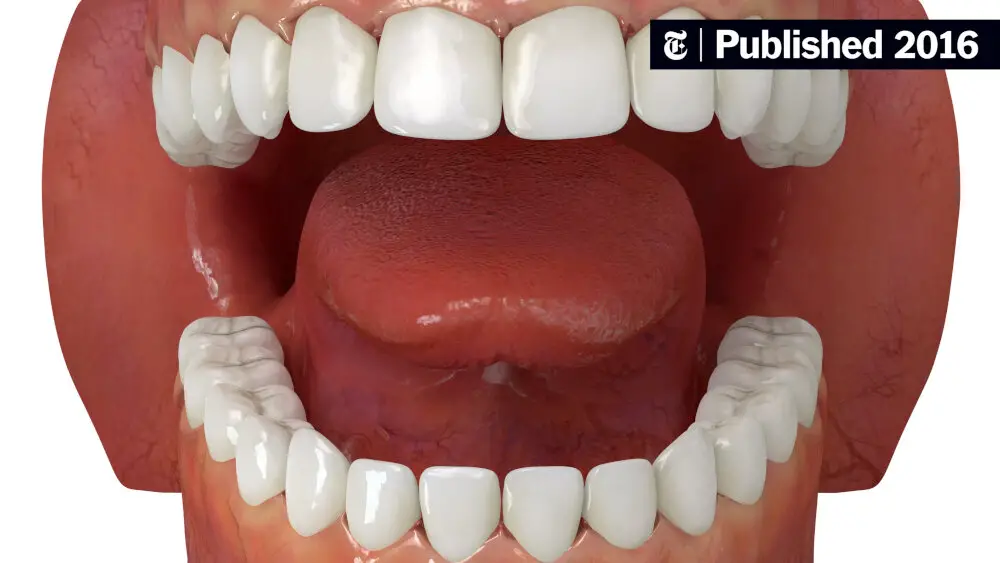
In conclusion, it is evident that candy can indeed hurt your teeth due to the effects of sugar on tooth enamel. Sugar is a prime culprit in tooth decay and can lead to numerous dental problems if not managed properly. The acid produced by bacteria in the mouth feeds on sugar and erodes the enamel, causing cavities and tooth decay. It is crucial to maintain good oral hygiene, moderate sugar intake, and regular dental check-ups to prevent tooth damage. By understanding the effects of sugar on tooth enamel, we can take appropriate measures to protect our dental health and enjoy sweet treats without compromising our overall well-being.

